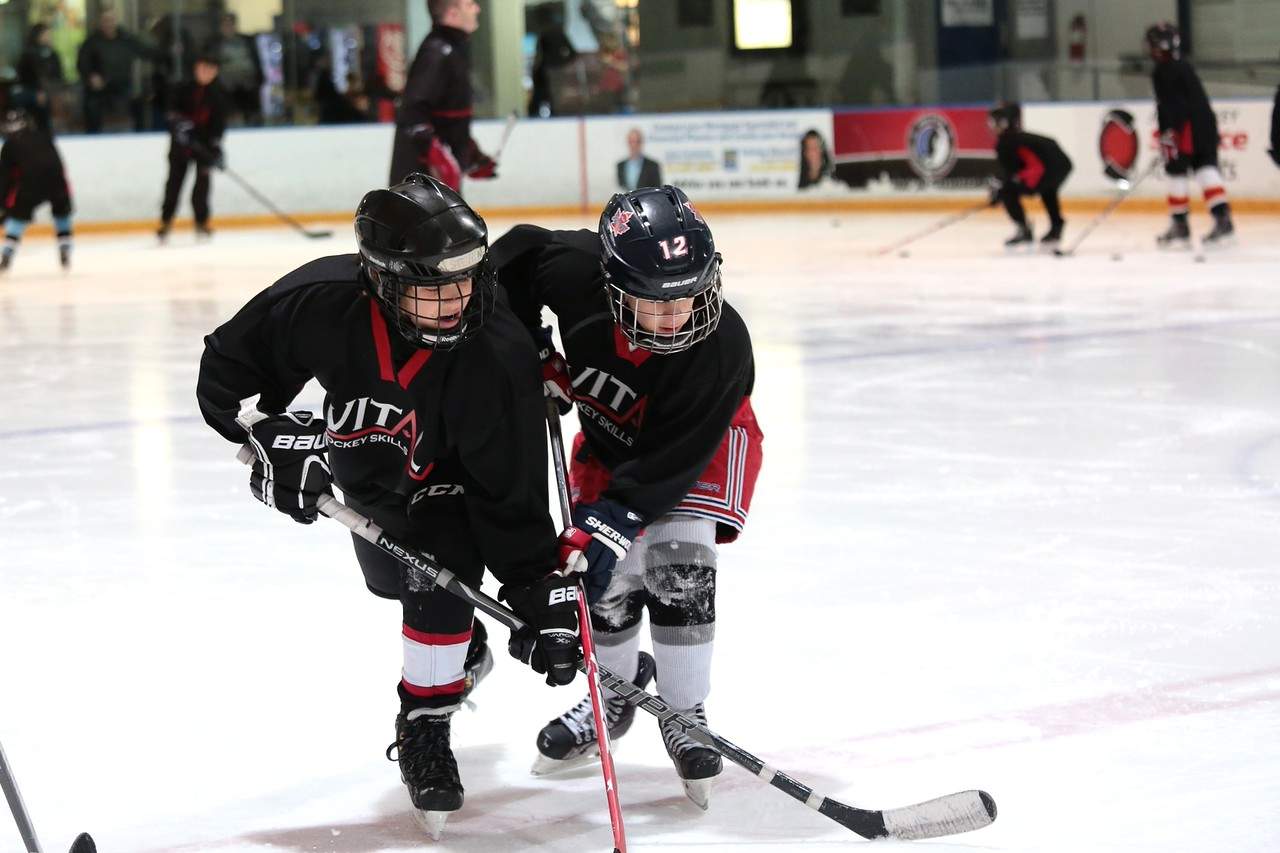
03 Oct 10 Best Hockey Practice Habits
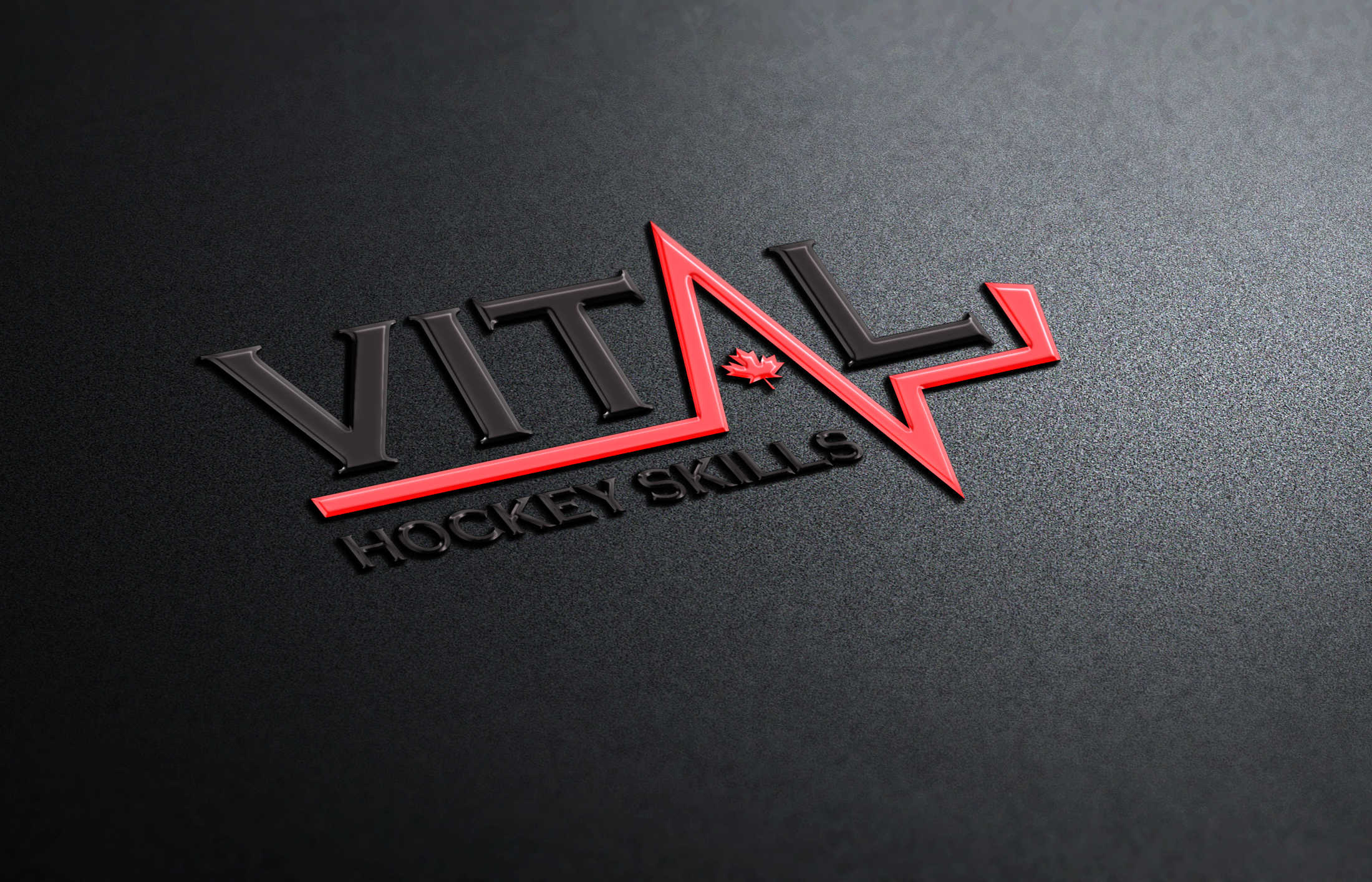
Aston Martin Lagonda Series 2 interior badge
Hockey Practice Habits to Live By
- Shoot to score. Over exaggerate the strength of your shot. Never let up
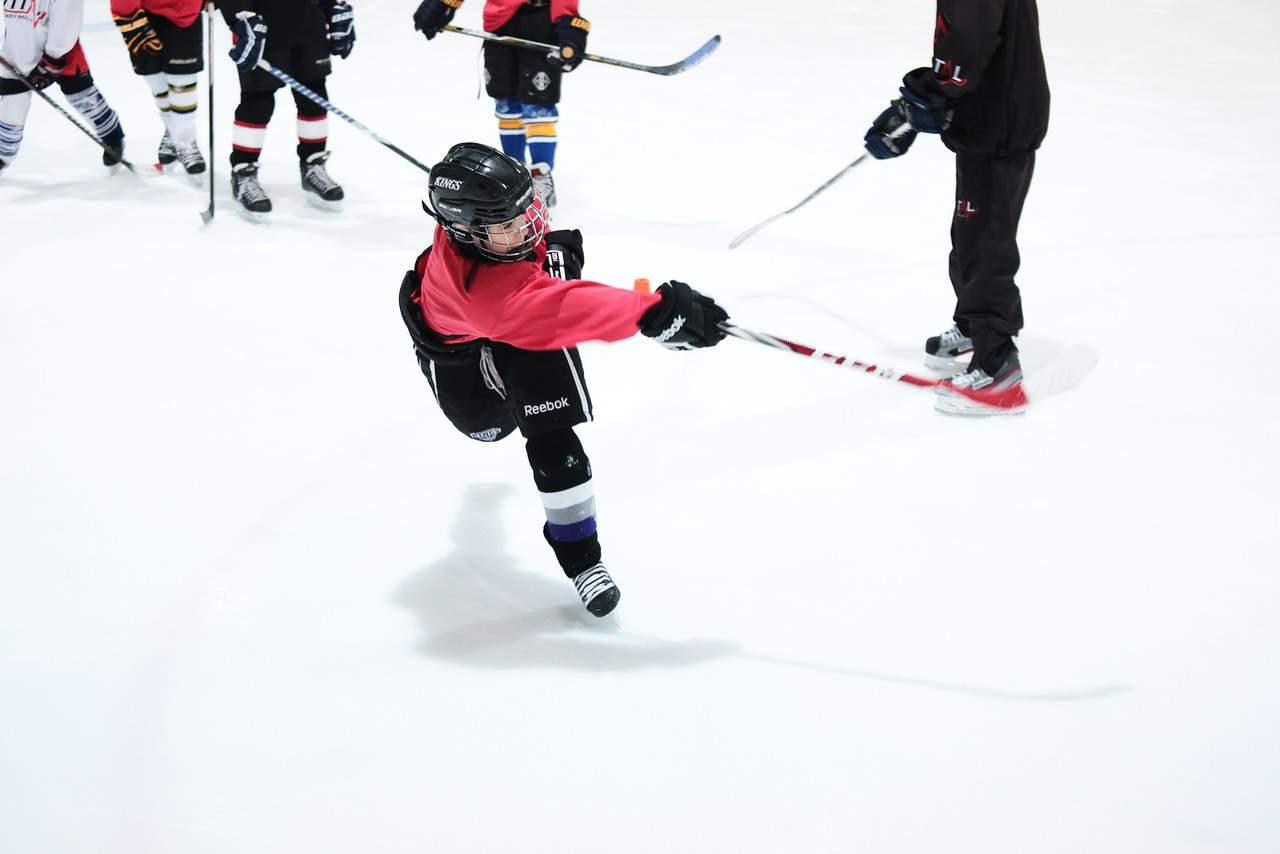 on the net. Never take it easy. Always bear down and finish your shot. Take a last minute glance and get in the habit of mentally picking a corner before you release the puck. Coach yourself on the way back to the line and think about how accurate your shot really was and why or why not.
on the net. Never take it easy. Always bear down and finish your shot. Take a last minute glance and get in the habit of mentally picking a corner before you release the puck. Coach yourself on the way back to the line and think about how accurate your shot really was and why or why not. - Accelerate toward the net. Never glide when you’re about to shoot. Never get into the habit in practice of big wind ups that are predictable by goalies in games. Add more strength to your shot by accelerating as you shoot. In doing this, you won’t have to depend so much on your upper body and shots will not only be unpredictable but they’ll come off your stick hard, with ease.
- Watch other players in line. Make sure to not be distracted while standing in line during drills. Studies show that watching players do drills is just the same as doing the drill yourself. Your motor neurons at a slower rate, or a less intense rate will still fire as if you are doing the drill yourself if you’re watching the drill intently. Watch for players mistakes. Watch with the eyes of a coach.
- Put everything into a game situation. If there’s no one in front of you, add a few moves on the way to the net. Add a little bit more intensity. Drive wide. Protect the pluck. Do things you would normally do in a game, even though there’s no one else in front of you.
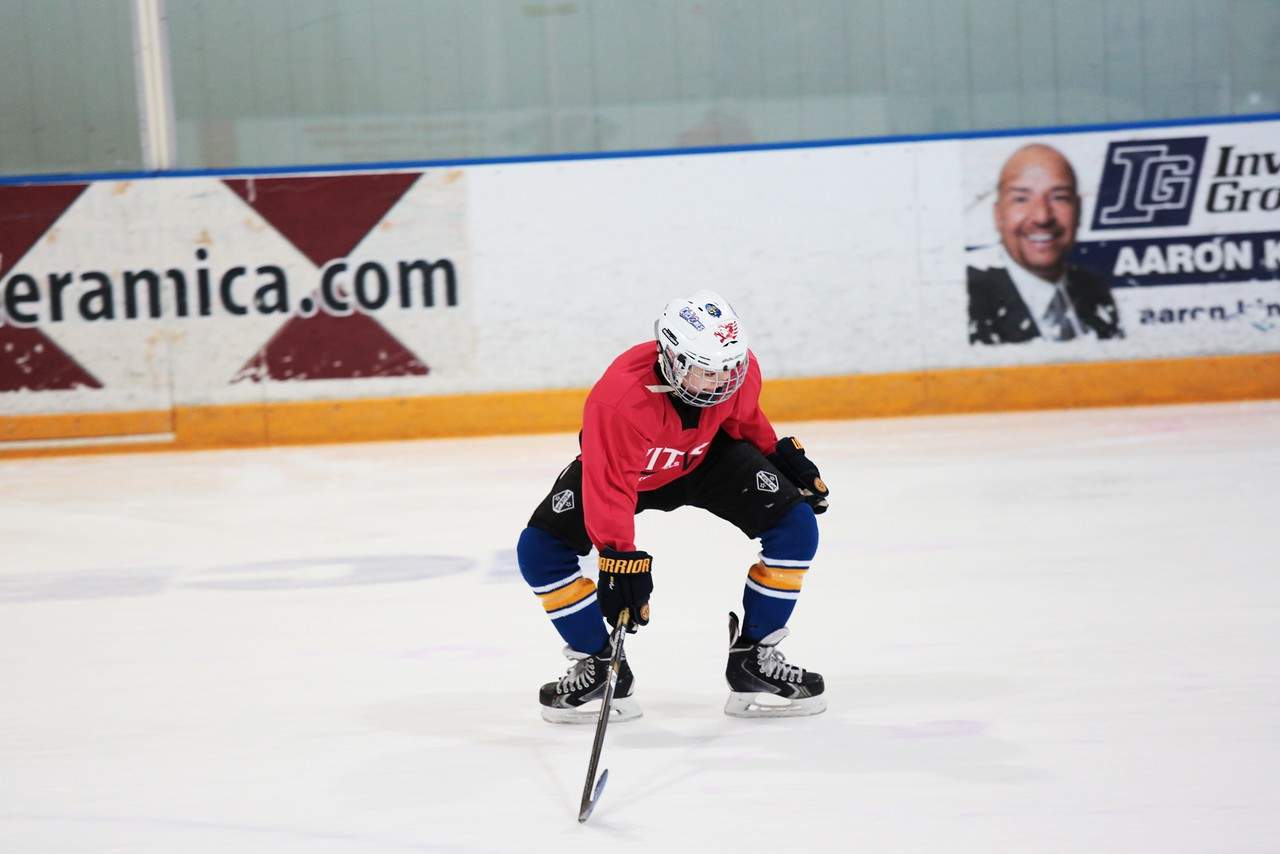 Bring creativity to practice. The best thing you could bring to practice is your creativity. Don’t be afraid to try things that might result in you losing the pluck. When you lose the pluck, that’s a sign that you’re taking your body places that it doesn’t recognize. Whether you’re doing a head fake harder than usual. Whether you’re trying to pull of some movement that requires smaller motor programs, don’t be afraid to pull it off. The only way you’ll get to do these type of moves in a game is to try to execute them in practice. Creativity in practice leads to great things in games when you least expect it. When you see an awesome move at the pro level in a highlight reel, don’t think for a second that it happened by accident. I can guarantee that when everyone else goes off practice, that player had sat there at some point rehearsing that. And you can also guarantee that player definitely wasn’t afraid to try it out in practice.
Bring creativity to practice. The best thing you could bring to practice is your creativity. Don’t be afraid to try things that might result in you losing the pluck. When you lose the pluck, that’s a sign that you’re taking your body places that it doesn’t recognize. Whether you’re doing a head fake harder than usual. Whether you’re trying to pull of some movement that requires smaller motor programs, don’t be afraid to pull it off. The only way you’ll get to do these type of moves in a game is to try to execute them in practice. Creativity in practice leads to great things in games when you least expect it. When you see an awesome move at the pro level in a highlight reel, don’t think for a second that it happened by accident. I can guarantee that when everyone else goes off practice, that player had sat there at some point rehearsing that. And you can also guarantee that player definitely wasn’t afraid to try it out in practice.- Always ask the coach for clarification when you don’t understand a drill. Never walk away from the coaching board confused, and get in line for a drill. Asking for clarification shows a coach that you care, and it shows a coach that you want to do well. The worst thing you can do while a coach is explaining a drill is immediately say, “What? Huh? I don’t get it.” It’s impossible if a coach is speaking the same language that you speak to not totally get a drill. Therefore, make sure to phrase your questions appropriately and be specific about what you don’t get. Little things add up to your understanding as well. Where are you sitting? Down on one knee while the coach is talking. Can you clearly see the board? If the coach has his back turned toward you, are you able to hear him or her clearly? Don’t be afraid to ask a coach to speak louder if you can’t hear.
- Be aggressive in practice. The worst thing you could do for yourself and
 your team mates is let up in practice. Letting up in practice while a team mate’s trying to get around you, or you’re chasing after a pluck and they beat you to it, is not practical for your team mate or yourself in terms of any game situation. Not challenging your team mates in practice gives them a false sense of ability under pressure that is unrealistic when considering the amount of pressure that happens in a game situation. Other teams and players on those teams will not let up. The best teams will pursue you at all costs, the best teams will do whatever it takes to get the pluck back from you. And this is the level of intensity you need to bring to practice so that your team mates are prepared to fend against that level of competition from other teams. Make sure to also tell your team mates to step it up a notch if they are letting up on you. In recognizing the importance of battling and being battled against, you need to let your team mates know that it’s important for you to have to earn the pluck and earn any opportunity you get to the net. The same thing goes for goal tending. If you’re shooting on a goal tender that seems disinterested, or is not putting in the effort. You need to let them know that it’s unacceptable and that you need them to work harder to challenge you to put that pluck in the net.
your team mates is let up in practice. Letting up in practice while a team mate’s trying to get around you, or you’re chasing after a pluck and they beat you to it, is not practical for your team mate or yourself in terms of any game situation. Not challenging your team mates in practice gives them a false sense of ability under pressure that is unrealistic when considering the amount of pressure that happens in a game situation. Other teams and players on those teams will not let up. The best teams will pursue you at all costs, the best teams will do whatever it takes to get the pluck back from you. And this is the level of intensity you need to bring to practice so that your team mates are prepared to fend against that level of competition from other teams. Make sure to also tell your team mates to step it up a notch if they are letting up on you. In recognizing the importance of battling and being battled against, you need to let your team mates know that it’s important for you to have to earn the pluck and earn any opportunity you get to the net. The same thing goes for goal tending. If you’re shooting on a goal tender that seems disinterested, or is not putting in the effort. You need to let them know that it’s unacceptable and that you need them to work harder to challenge you to put that pluck in the net. - Always accelerate from a stand still. This is probably the number one habit that could lead to huge gains in game play. And a lot of game players don’t realize the benefits of exaggerating a quick start every chance they get. Whether it’s standing still and receiving a pass, your ability to get from zero to 60 in no time will dictate how quickly you could surprise that defense man who is trying to maintain a gap on you going through the neutral zone by blistering speed. The quicker you’re coming at a defense man, the harder it is for him to maintain that gap. Get on your toes and make a difference in every step you take for the first four or five steps of an explosive start in every drill. That type intensity will teach your body that it’s not okay just to start skating with long strides. That the skating movement must start with a forward lean and quick steps on your toes.
- Embrace mistakes. All too often, players who make mistakes in practice throw their head back, bang their stick, and get frustrated. The error here is in the way a player is looking at a mistake. Mistakes are not to be frowned upon, mistakes are a sign that you’re taking your body to a place that it’s not prepared to facilitate. Remember, your body is an energy conservation machine. It will not invest energy into making neuro pathways that it does not deem important for survival. And your body will not deem an action or a movement important for
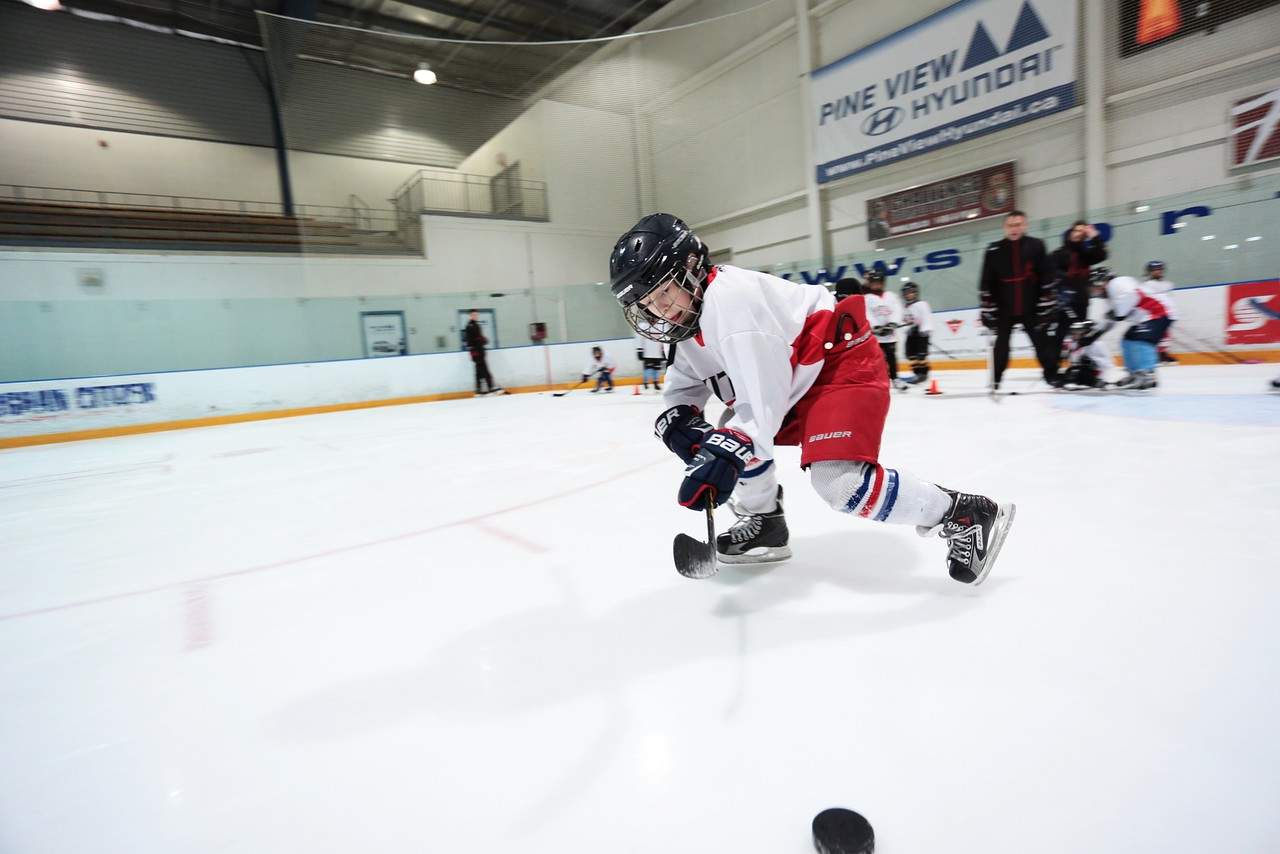 survival, unless it happens often. So if you don’t take your body outside of it’s usual actions, it will not create new motor programs. Stumbling, falling, being off balance, feeling awkward are all signs that you’re asking your body to build new pathways for you. And over time, repeating exaggerated movements, and movements at higher intensity and more explosive will result in less stumbling. Which will give you a reassurance that you are developing. Development won’t just happen to you, development happens when you ask your body to do it for you, and the only way to ask is to do things harder, quicker, and in more exaggerated fashions than you’re used to. If a coach says, “Pivot,” pivoting at your regular standard height will not lead to any improvement in speed or ability. However, bending your knees before the pivot, so that the pivot feels a little bit uncomfortable and difficult to get through – will be asking your body to execute this already ingrained motor program at a whole new level and then repeating that level of discomfort and knee bend over and over, your body eventually will respond by asking your nervous system to create multiple pathways to muscles needed. Something your body won’t do without prolonged repetition of exaggerating the skill.
survival, unless it happens often. So if you don’t take your body outside of it’s usual actions, it will not create new motor programs. Stumbling, falling, being off balance, feeling awkward are all signs that you’re asking your body to build new pathways for you. And over time, repeating exaggerated movements, and movements at higher intensity and more explosive will result in less stumbling. Which will give you a reassurance that you are developing. Development won’t just happen to you, development happens when you ask your body to do it for you, and the only way to ask is to do things harder, quicker, and in more exaggerated fashions than you’re used to. If a coach says, “Pivot,” pivoting at your regular standard height will not lead to any improvement in speed or ability. However, bending your knees before the pivot, so that the pivot feels a little bit uncomfortable and difficult to get through – will be asking your body to execute this already ingrained motor program at a whole new level and then repeating that level of discomfort and knee bend over and over, your body eventually will respond by asking your nervous system to create multiple pathways to muscles needed. Something your body won’t do without prolonged repetition of exaggerating the skill. - Have fun but never enjoy a practice too much. There’s no doubt getting to the rink, being with your team mates, getting on the ice and working hard should be fun. If you don’t enjoy it, like anything in life, you won’t work on it for any period of time. You’ve got to enjoy doing what you do to work hard at it, that’s a universal truth. But, you should never enjoy a practice too much. If you enjoy practice, you’re doing it wrong. If you enjoy practice, that’s a sign that your guard is down and that you’re seeing the easy side of practice. I always say, “If you enjoy practice, you’re doing it wrong.” So not to be confused with having
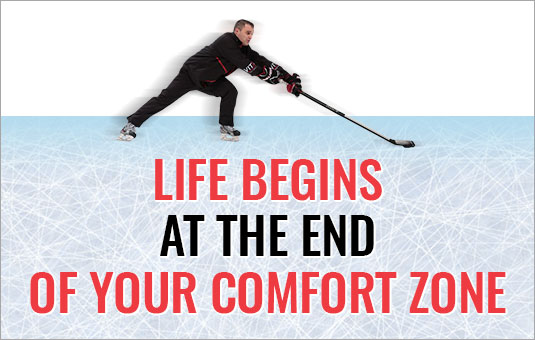 fun at practice, through the paradigm of hard work, intensity, sweat, and a little bit of pain, practice can be fun, ’cause all these things can give you a quiet confidence and a reassurance that you’re doing a great job. Bringing this type of intensity to practice, makes practice fun. But this isn’t to be confused with haphazardly enjoying a practice. From being overtly social and lackadaisical, playing too many pranks, going through the motions. Have fun, but pick your times and your spots to have to do so. And never let yourself enjoy a practice too much.
fun at practice, through the paradigm of hard work, intensity, sweat, and a little bit of pain, practice can be fun, ’cause all these things can give you a quiet confidence and a reassurance that you’re doing a great job. Bringing this type of intensity to practice, makes practice fun. But this isn’t to be confused with haphazardly enjoying a practice. From being overtly social and lackadaisical, playing too many pranks, going through the motions. Have fun, but pick your times and your spots to have to do so. And never let yourself enjoy a practice too much.




Sorry, the comment form is closed at this time.